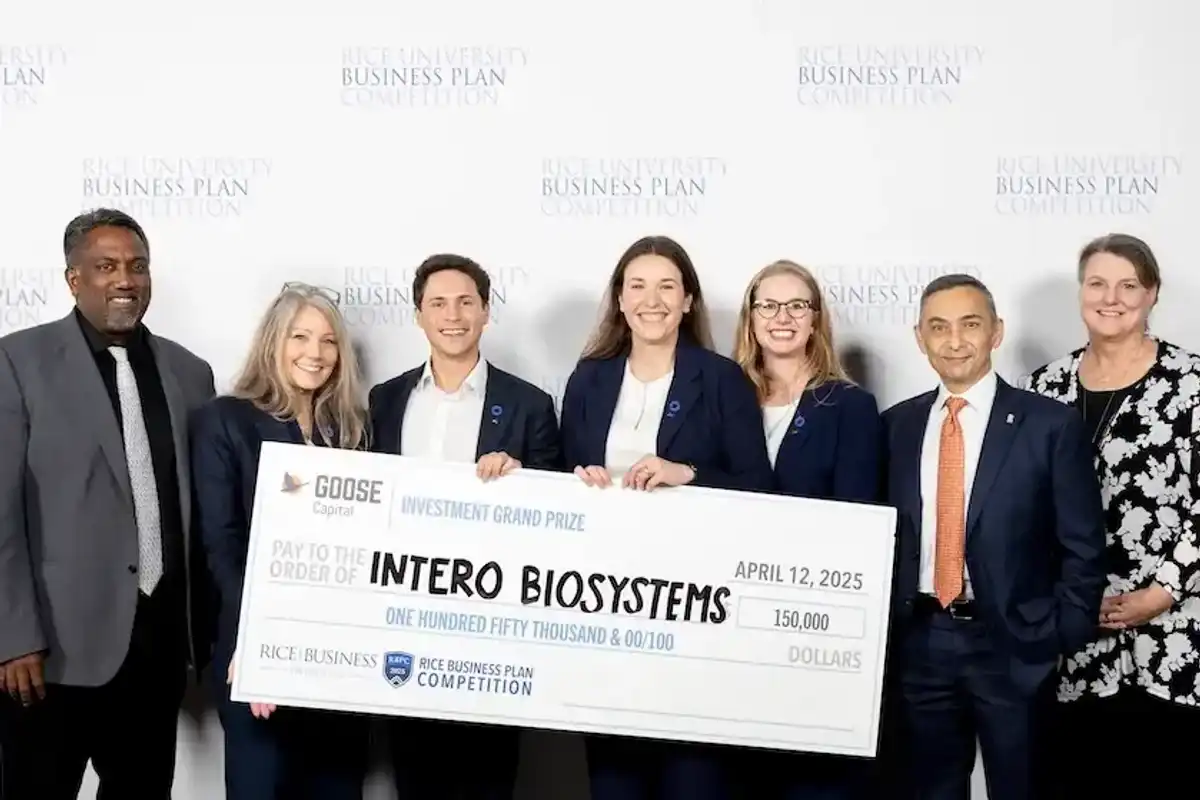Groundbreaking prosthesis device designed at UH earns international ‘luminary’ award
give him a hand
A recent University of Houston graduate is receiving international recognition for his 3D-printable finger prosthesis.
David Edquilang, the creator of a low-cost prosthesis known as Lunet, was awarded the 2023 Red Dot: Luminary award last month at the Red Dot Award: Design Concept ceremony in Singapore. The luminary award is the highest recognition given at the international event, according to a release from UH.
Edquilang, who graduated from UH in 2022, developed Lunet while he was a student at the Gerald D. Hines College of Architecture and Design and under the mentorship of UH associate professor and co-director of the Industrial Design program Jeff Feng.
The prosthesis is made up of polylactic acid and thermoplastic polyurethane, two common types of 3D-printed plastics, and designed to be simple but essentially indestructible.
Lunet's "fingers" are made of four parts held together by plastic pins, compared to other prosthetics that feature many different parts and require metal fasteners, adhesives or tools.
“The problem with higher mechanical complexity is that these designs are less durable,” Edquilang says in the statement. “The more parts you have, the more points of failure. You need to make prosthetic fingers robust and as strong as possible, so it doesn’t break under normal use, yet you want the design to be simple. This was one of the greatest challenges in making Lunet.”
Lunet is also unique in that it includes a linkage mechanism that allows the fingers' distal knuckle (closest to the fingertip) to be more flexible, and even partially hyperextend backward to be more durable and realistic.
What's perhaps the rarest component of Lunet is that Edquilang has made it open access on the internet.
“Not every good idea needs to be turned into a business. Sometimes, the best ideas just need to be put out there,” Edquilang adds. “Medical insurance will often not cover the cost of a finger prosthesis, since it is not considered vital enough compared to an arm or leg. Making Lunet available online for free will allow it to help the greatest number of people."
The concept was born after Edquilang worked on an upper limb prosthesis with fellow UH student Niell Gorman. After that project wrapped, Edquilang, in partnership with Harris Health System, began designing a prosthetic hand for a woman who had lost three fingers due to frostbite. Edquilang and Feng continued to refine the product, and after conceptualizing the breakthrough idea for the flexible linkage for the distal knuckle, Lunet became what it is today.
The product has also won a 2023 Red Dot: Best of the Best award, two 2023 DNA Paris Design Awards, Gold for the 2023 Spark Design Award, and is currently a U.S. National Runner Up for the 2023 James Dyson Award.
“It feels great knowing you have the capability to positively impact people’s lives and give them help they otherwise wouldn’t be able to get,” Edquilang says.
This summer UH researchers also published their work on a wearable human-machine interface device that can track and record important health information but is less noticeable and lighter than a Band-Aid. The device could be attached to a robotic hand or prosthetic, as well as other robotic devices that can collect and report information to the wearer.
Also this summer, a team from Rice published their work on a new system of haptic accessories that rely heavily on fluidic control over electrical inputs to signal or simulate touch to a wearer. The technology, which was backed by the National Science Foundation, has uses for those with visual and auditory impairments and offers a slimmed-down design compared to other bulky complex haptic wearables.





